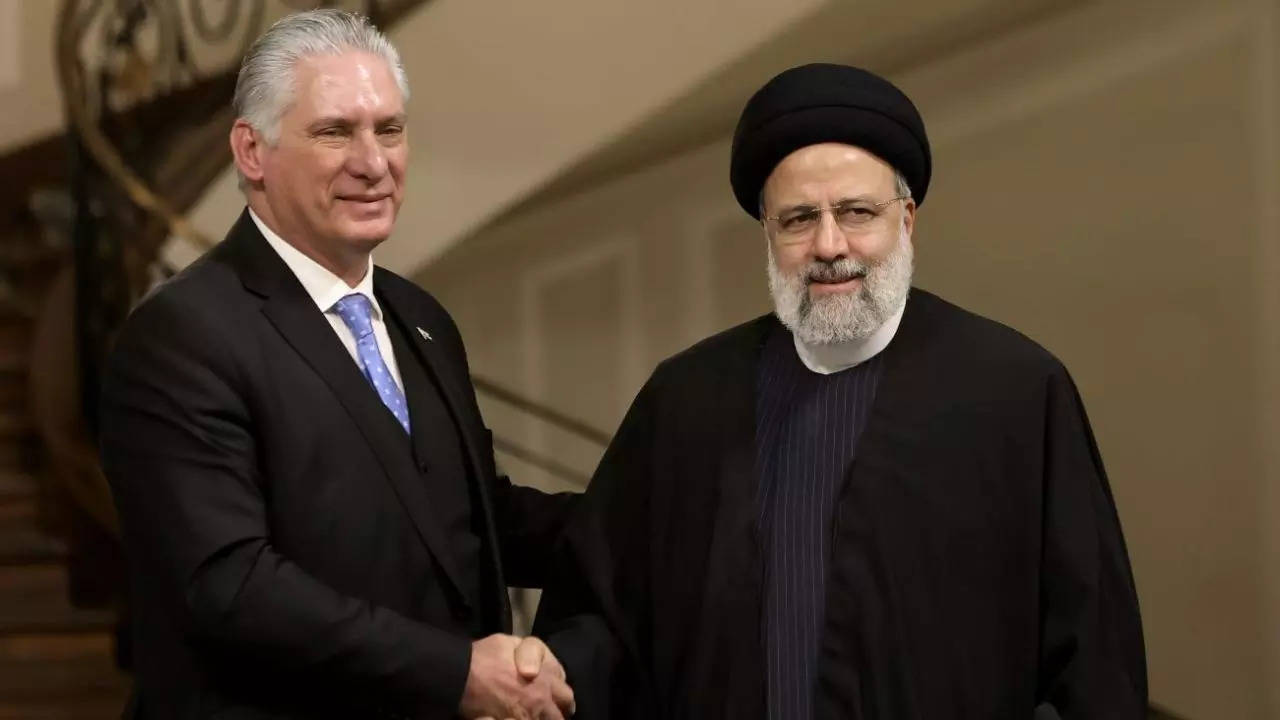In a diplomatic maneuver shaped by shared challenges, Iran and Cuba have strengthened ties amid escalating US sanctions. The move comes at a time when the United States has charged a former ambassador with spying for Cuba, further complicating the already strained relations between the countries.
As both Iran and Cuba face economic hardships due to US sanctions, their collaboration is seen as a strategic response to navigate the constraints imposed by the international community. The alliance may involve economic cooperation, trade agreements, and mutual support to counteract the impact of sanctions on their respective economies.

Source:- times of India
Simultaneously, the recent revelation of a former US ambassador being charged with espionage for Cuba adds another layer of complexity to the geopolitical landscape. This development heightens tensions between the United States and Cuba, potentially influencing the dynamics of regional politics.
The shared experience of dealing with US sanctions could foster a deeper understanding between Iran and Cuba, leading to increased diplomatic, economic, and possibly military cooperation. Such alliances often emerge when nations face common adversaries or challenges, and in this case, the desire to counteract the effects of US sanctions serves as a unifying factor.
The evolving situation raises questions about the potential consequences for US foreign policy and its relations with both Iran and Cuba. The diplomatic landscape may witness shifts as these alliances strengthen, challenging the effectiveness of unilateral sanctions and prompting a reassessment of US strategies.
In summary, the collaboration between Iran and Cuba amid US sanctions reflects a strategic response to shared challenges. The simultaneous espionage charges against a former US ambassador for spying on behalf of Cuba further complicate the diplomatic scenario. The evolving dynamics underscore the intricate nature of international relations and the interplay of geopolitical factors in shaping alliances and conflicts.
Share your views in the comments

